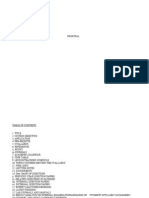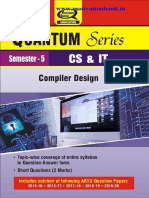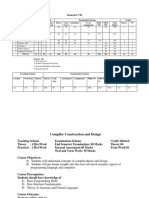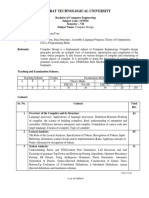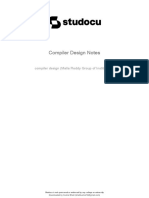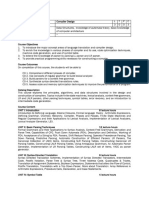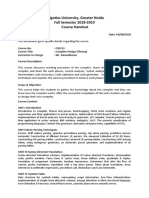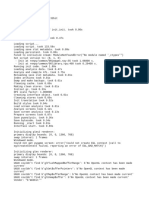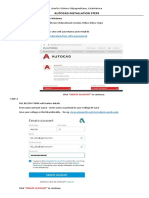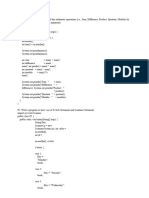0% found this document useful (0 votes)
121 views4 pagesB.tech 15CS314J Compiler Design
The document outlines a course plan for a Compiler Design course offered at SRM Institute of Science and Technology. It provides details such as the course code, title, semester, timings, location, faculty, textbooks, references, prerequisites, objectives, assessment details, test schedule, purpose, and a detailed session plan covering various topics to be taught across 17 sessions over 3 units. The course aims to teach fundamentals of compiler design through parsing, translation to intermediate codes, code generation, and optimization techniques. Students will be assessed through cycle tests, surprise tests, and attendance.
Uploaded by
vijaya shanthiCopyright
© © All Rights Reserved
We take content rights seriously. If you suspect this is your content, claim it here.
Available Formats
Download as PDF, TXT or read online on Scribd
0% found this document useful (0 votes)
121 views4 pagesB.tech 15CS314J Compiler Design
The document outlines a course plan for a Compiler Design course offered at SRM Institute of Science and Technology. It provides details such as the course code, title, semester, timings, location, faculty, textbooks, references, prerequisites, objectives, assessment details, test schedule, purpose, and a detailed session plan covering various topics to be taught across 17 sessions over 3 units. The course aims to teach fundamentals of compiler design through parsing, translation to intermediate codes, code generation, and optimization techniques. Students will be assessed through cycle tests, surprise tests, and attendance.
Uploaded by
vijaya shanthiCopyright
© © All Rights Reserved
We take content rights seriously. If you suspect this is your content, claim it here.
Available Formats
Download as PDF, TXT or read online on Scribd
/ 4

